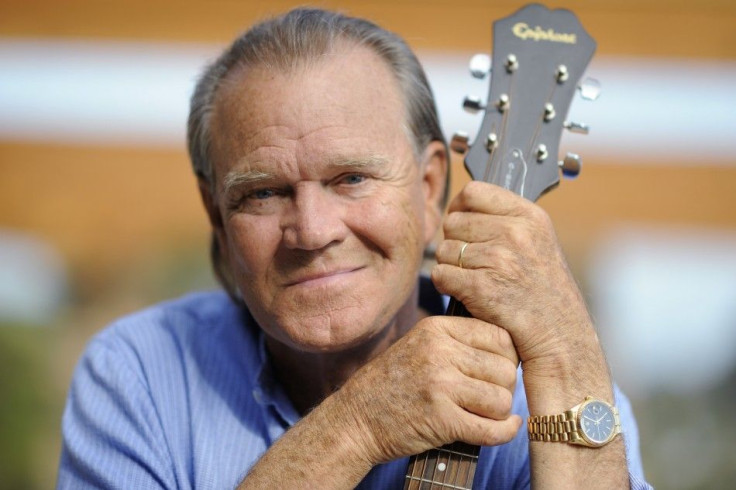Campbell's Ghost moving, if not always satisfying, farewell

When Glen Campbell made a comeback bid in 2008, there was one aspect of his concert appearances that invited audiences' ridicule or alarm -- not his delivery, which was still pitch-perfect, but the fact that his eyes were glued to his Teleprompter for even his most familiar hits. Could he really be afraid he'd forget the words to the chorus of Galveston?
Yes, as we now know from his recently revealed Alzheimer's diagnosis. Although he's still good to go with the aid of those monitors, Campbell has announced his farewell tour, preceded by this week's release of a goodbye album, Ghost on the Canvas, to usher in the exit strategy.
Pop music hasn't produced a lot of deliberate farewell albums so far, besides Warren Zevon's The Wind. But as self-expressive boomers continue to look at what ails them head-on, we'll surely be seeing a lot more. And Ghost on the Canvas is a sweet, soaring template for how to musically go into that good night with gentleness on one's mind.
Ghost is a clear companion piece to 2008's excellent Meet Glen Campbell, with both trying slavishly -- and successfully -- to re-create the sound of his finest mid-'60s recordings. Both were produced by Julian Raymond, a careful student of that particular old school, who is very much the auteurist ghost in the machine in Ghost on the Canvas.
But whereas the previous album seemed designed to introduce Campbell to young indie-rockers with covers of familiar material by the Velvet Underground, Foo Fighters, and Green Day, this follow-up consists of all-new material, mostly co-written by Campbell, with a few fresh contributions from Paul Westerberg, Jakob Dylan, and Guided by Voices' Robert Pollard.
The intent this time wasn't to introduce the veteran pop-country star to a new generation but to make a final statement for the generation that came up with him. It couldn't be any more valedictory if it came with a cap and gown.
Sometimes intent trumps execution on the album. If you're going to go out of your way to specifically echo Wichita Lineman or Windmills of My Mind from a song's opening instrumental moments, you'd do well to have a piece of material that's nearly as good as those, and few of the songs here rival Jimmy Webb territory.
Even so, the album is not just noble but lovely -- and irresistible, if you hold the slightest nostalgia for the dignified, lonesome Southwestern country Campbell recorded for Capitol 45 years ago. Nimble acoustic guitar picking inevitably leads to a sad swell of stings, and damn if you can't imagine the Wichita lineman, still up there on the line, sending out musical Morse code.
Though it's obvious that producer Raymond did the heavy lifting on the songs he co-wrote with the singer, the gospel undercurrents of the lyrics are all Campbell's, from the opening assurance that he'll sooner than later be in A Better Place to the spiritual abidance of It's Your Amazing Grace.
Although it's a bit lyrically clumsy, Strong is still a moving statement of determination to not play the victim in the inevitably imbalanced relationship between disease victim and caretaker.
No one would wish an extra memory loss on an Alzheimer's patient. But if Campbell just happened not to recall that this was his last album -- and between his good physical health and Raymond's guidance, an additional album of cover songs hardly seems impossible -- Ghost might have you hoping everyone else involved remembers to forget, too.
© Copyright Thomson Reuters 2024. All rights reserved.











